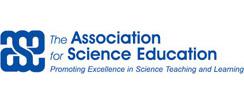- View more resources from this publisher
 Association for Science Education (ASE)
Association for Science Education (ASE)
UNESCO Resource Kit - Science and Technology Education
This folder of guidance and resources was published for UNESCO by the Association for Science Education. The resources consisted of 26 modules each with Student’s Notes and Teacher’s Notes.
UNESCO Project 2000+ was a collaborative partnership between eleven major international agencies and inter-governmental organisations with particular concerns and responsibilities for research and development in the field of science and technology education.
The Project 2000+ Declaration stated that that sustainable development is dependent upon a scientific and technologically literate population and called on governments, industry, public and private sector interests to review educational provision. It urged agencies, Non-Governmental Organisations (NGOs), International Non-Governmental Organisations (INGOs) and governments to work together to advance the capability of countries for designing, planning and implementing programmes to enhance scientific and technological literacy for all.
[b]Contents of the introductory booklet[/b]
*The Origins and Purpose of Project 2000+
*The Meaning of Scientific and Technological Literacy (STL)
*STL and Science Teacher Education
*Using the Project 2000+ Resource Kit
*Formative Assessment of Progress in STL
*STL for In-service and Distance Learning
*Developing and Evaluating Local STL Materials
*Past and Future Research on STL
*Bibliography
[b]Contents of the file of resources[/b]
1 Cars and energy
2 Getting to school
3 Fuels for the future
4 Problems with fossil fuels
5 Oremulsion
6 The water cycle
7 Sources of fresh water
8 Managing water resources
9 Forests for the future
10 Tropical rain forests
11 Wood as a fuel
12 Wood as a structural material
13 Materials made from wood
14 Biodiversity
15 Cloning sheep
16 Investigating pollution
17 Sorting out waste
18 Noise pollution
19 Combining heat and power
20 Solar heating
21 Photovoltaics
22 Wind power
23 Alcohol in your body
24 Testing the quality of food
25 Understanding eclipses of the Sun
26 Working with numbers
Show health and safety information
Please be aware that resources have been published on the website in the form that they were originally supplied. This means that procedures reflect general practice and standards applicable at the time resources were produced and cannot be assumed to be acceptable today. Website users are fully responsible for ensuring that any activity, including practical work, which they carry out is in accordance with current regulations related to health and safety and that an appropriate risk assessment has been carried out.




